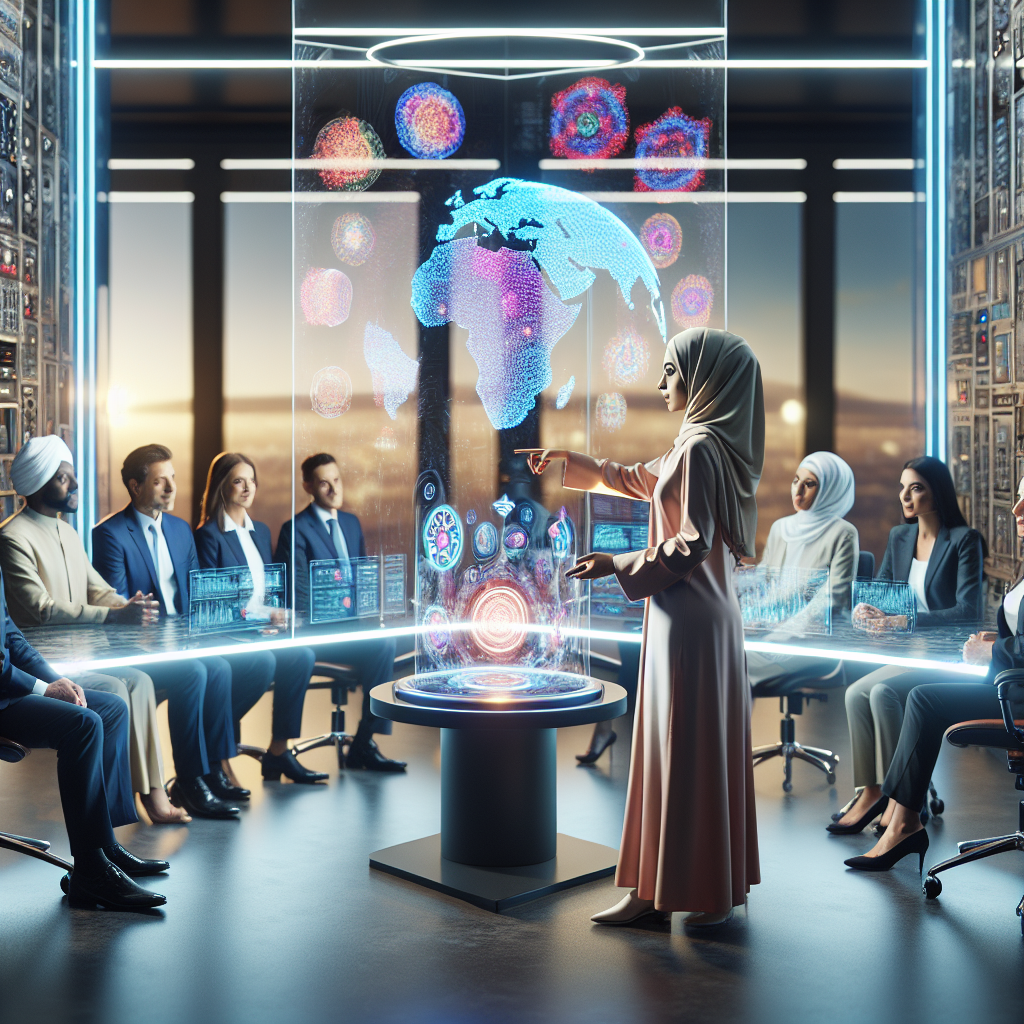In recent years, there has been a significant increase in the use of artificial intelligence (AI) in various sectors, including government. AI has the potential to revolutionize the way governments operate, making them more efficient, accessible, and inclusive. In this article, we will explore the role of AI in enhancing government accessibility and inclusivity, as well as address some frequently asked questions about this topic.
One of the key ways in which AI can enhance government accessibility is by improving the efficiency of government services. By automating routine tasks and processes, AI can help governments handle a larger volume of requests and inquiries more quickly and accurately. This means that citizens can access the services they need in a more timely manner, without having to wait in long lines or navigate complicated bureaucratic processes.
AI can also help governments provide more personalized and tailored services to citizens. By analyzing data from various sources, AI can help governments better understand the needs and preferences of individual citizens, allowing them to provide more relevant and targeted services. For example, AI can help governments recommend specific programs or services to citizens based on their past interactions with government agencies, making it easier for them to access the support they need.
In addition to improving the efficiency and personalization of government services, AI can also help make government information more accessible to all citizens. Through the use of natural language processing and machine learning, AI can help governments create more user-friendly interfaces for their websites and applications, making it easier for citizens to find the information they are looking for. This can be particularly beneficial for individuals with disabilities, who may face barriers when accessing traditional government services.
Furthermore, AI can help governments make their communication more inclusive by providing translation services for individuals who speak different languages. By using AI-powered translation tools, governments can ensure that all citizens have access to important information and services, regardless of their language proficiency. This can help bridge the communication gap between government agencies and citizens who speak languages other than the official language of the country.
Overall, AI has the potential to transform the way governments interact with citizens, making government services more efficient, personalized, and inclusive. By harnessing the power of AI, governments can better meet the needs of all citizens, regardless of their background or abilities.
Frequently Asked Questions:
Q: How can AI help governments improve the efficiency of their services?
A: AI can help governments automate routine tasks and processes, allowing them to handle a larger volume of requests and inquiries more quickly and accurately. This can help reduce wait times for citizens and streamline bureaucratic processes.
Q: How can AI help governments provide more personalized services to citizens?
A: By analyzing data from various sources, AI can help governments better understand the needs and preferences of individual citizens, allowing them to provide more relevant and targeted services. This can help governments tailor their services to meet the specific needs of each citizen.
Q: How can AI help governments make their information more accessible to all citizens?
A: AI can help governments create more user-friendly interfaces for their websites and applications, making it easier for citizens to find the information they are looking for. AI-powered translation tools can also help governments provide information in multiple languages, making it more accessible to individuals who speak different languages.
Q: How can AI help governments improve communication with citizens?
A: AI can help governments provide translation services for individuals who speak different languages, ensuring that all citizens have access to important information and services. AI can also help governments analyze citizen feedback and sentiment, allowing them to better understand the needs and concerns of their constituents.
In conclusion, AI has the potential to revolutionize the way governments operate, making them more efficient, accessible, and inclusive. By harnessing the power of AI, governments can better meet the needs of all citizens, regardless of their background or abilities. Through the use of AI, governments can provide more personalized and tailored services, make information more accessible, and improve communication with citizens. As AI continues to evolve and advance, it is likely that its role in enhancing government accessibility and inclusivity will only continue to grow.

